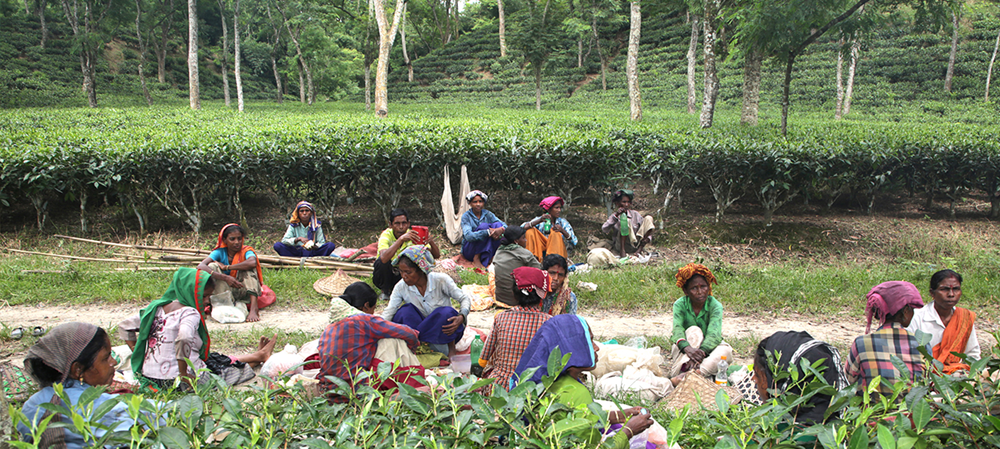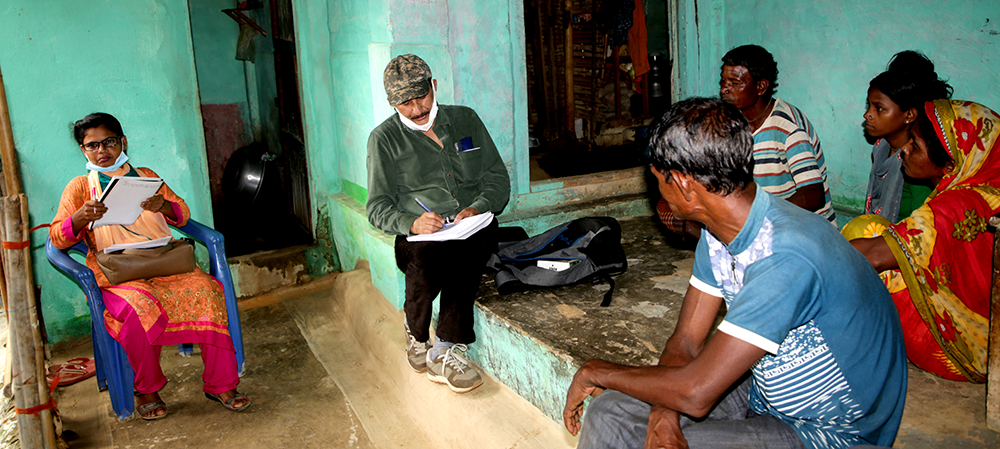

The Canadian High Commission to Bangladesh Supports SEHD to Develop Life Skill of Tea Workers
Funded under the Canada Fund for Local Initiatives (CFLI) of the Canadian Government, Society for Environment and Human Development (SEHD) has initiated a 16-month project titled, ‘Strengthening the voice of the women tea plantation workers and their communities to enhance their social protection and rights.’ The project officially started in December 2020.
The key objectives of the project are to: (i) engage women tea plantation workers who work in over 160 tea gardens in identifying their needs for capacity building to negotiate and exercise their collective voice for social protection and economic rights. (ii) sensitize the male-dominated lone trade union of 138,000 tea plantation workers (around 50 percent of them are women) and the panchayets about gender equality. These objectives will be achieved through conduct of training sessions on the life skills and issues related to improving working and living conditions for the women tea plantation workers and girls in the selected tea gardens; support to the trade union in organizing “Gender talk”; training on negotiation skills, management and leadership for tea garden workers particularly women; and dialogue among the Government authorities, employers and women tea plantation workers during the celebration of International Tea Day (15 December) and 16 Days of Activism against Gender-based Violence (15 November to 10 December).
Brief description of the applicant organization/group: Operating since 1993, SEHD has worked on specific areas and with excluded and marginalized communities including tea workers, indigenous communities, sex workers and transgender (TG), Harijan or sweeper, Rishi or cobbler (Harijan and Rishi identify themselves as Dalit as well), Bede (gypsies) and different other excluded ad social outcasts groups. These excluded groups [with roughly six million people] are among the poorest of the poor of the country. SEHD has been particularly addressing the social, economic and cultural rights of these communities who are denied their rightful place in society. The knowledge resources (books, reports, monographs, documentary films, etc.) that SEHD has developed on these communities and shared with wide range of targets and users show its unique strategies.
Context of the project: Bangladesh is one of top ten tea producing countries with around 160 tea gardens (excluding those in the North Bengal) spread over Sylhet and Chattogram divisions with their main concentration in Moulvibazar, Habiganj, Sylhet and Chattogram districts. These tea gardens cover an area of 113,663.87 ha and employ around 138,000 workers, half of them women and adolescent girls. However, around 90% of the tealeaf pickers are women and adolescent girls who do the most painstaking job in the tea production process. Importantly, around 95 percent of the tea workers and their communities of about half million people are non-Bengali in the Bengali majority Bangladesh.
The tea plantation workers are among the most marginalised, excluded and extreme poor of Bangladesh. The foremost of the key problems that both women and men tea workers face is wage deprivation with a daily cash pay of Taka 120 ($1.4). Needless to say a worker’s family income is far below the poverty level income causing further deprivation from access to education, health services and nutritious food.
While the general condition of the tea workers is appalling, conditions of women and girls are even worse. They work for longer hours and get lower wages compared to their male counterparts. Women are more vulnerable than men due to persistent gender inequality at workplace and home. They bear additional responsibilities compared to men carrying out household chores, giving birth and taking care of the family. Moreover, most of the women workers have no control over their own income and body.
Explanation of the project: The goal of the project is empowerment of the women tea plantation workers and girls with increased knowledge and awareness about gender equality, social protection, labour law, labour standards and public services that they can access as equal citizens of the country.
The project activities is expected to produce a number of long-term outputs or results.
- Cashing in on its past research outputs, connections it has developed with a large of number community leaders and community organizations (panchayets) and contribution it has made in strengthening the only trade union of the tea workers, SEHD will engage particularly women and girls to negotiate and exercise their collective voice to influence policies and the duty bearers (employers and the government agencies overseeing their wellbeing) for their social protection.
- The tea plantation workers especially women and girls will gain greater knowledge about the operation of their trade union and how they can fully participate in its activities, government institutions handling social safety net programmes (SSNPs) and exclusion errors made in selecting right beneficiaries for SSNPS, rights defined by labour law and labour standards and how to access public services related to education and health in particular.
- A user-friendly life skills training manual developed with past experiences and fresh inputs, a three-fold flyer and a poster produced (in Bengali) will equip the women and girls on rights issues, participation, negotiation and communication skills during the implementation of the project and afterwards.
- The male-dominated trade union leaders and men of the tea gardens in general are sensitized about gender issues plaguing tea plantation workers. Men agree that women face discrimination in the trade union, families, society and workplace. Interactions through workshops and dialogues will motivate them to give women and girls their rightful space.
